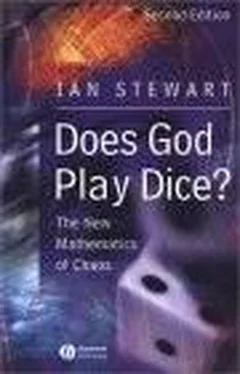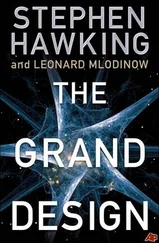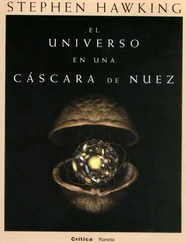
Stephen W. Hawking
Does God Play Dice?
written in 1999
This lecture is about whether we can predict the future, or whether it is arbitrary and random. In ancient times, the world must have seemed pretty arbitrary. Disasters such as floods or diseases must have seemed to happen without warning, or apparent reason. Primitive people attributed such natural phenomena, to a pantheon of gods and goddesses, who behaved in a capricious and whimsical way. There was no way to predict what they would do, and the only hope was to win favour by gifts or actions. Many people still partially subscribe to this belief, and try to make a pact with fortune. They offer to do certain things, if only they can get an A-grade for a course, or pass their driving test.
Gradually however, people must have noticed certain regularities in the behaviour of nature. These regularities were most obvious, in the motion of the heavenly bodies across the sky. So astronomy was the first science to be developed. It was put on a firm mathematical basis by Newton, more than 300 years ago, and we still use his theory of gravity to predict the motion of almost all celestial bodies. Following the example of astronomy, it was found that other natural phenomena also obeyed definite scientific laws. This led to the idea of scientific determinism, which seems first to have been publicly expressed by the French scientist, Laplace. I thought I would like to quote you Laplace 's actual words, so I asked a friend to track them down. They are in French of course, not that I expect that would be any problem with this audience. But the trouble is, Laplace was rather like Prewst, in that he wrote sentences of inordinate length and complexity. So I have decided to para-phrase the quotation. In effect what he said was, that if at one time, we knew the positions and speeds of all the particles in the universe, then we could calculate their behaviour at any other time, in the past or future. There is a probably apocryphal story, that when Laplace was asked by Napoleon, how God fitted into this system, he replied, 'Sire, I have not needed that hypothesis.' I don't think that Laplace was claiming that God didn't exist. It is just that He doesn't intervene, to break the laws of Science. That must be the position of every scientist. A scientific law, is not a scientific law, if it only holds when some supernatural being, decides to let things run, and not intervene.
The idea that the state of the universe at one time determines the state at all other times, has been a central tenet of science, ever since Laplace's time. It implies that we can predict the future, in principle at least. In practice, however, our ability to predict the future is severely limited by the complexity of the equations, and the fact that they often have a property called chaos. As those who have seen Jurassic Park will know, this means a tiny disturbance in one place, can cause a major change in another. A butterfly flapping its wings can cause rain in Central Park, New York. The trouble is, it is not repeatable. The next time the butterfly flaps its wings, a host of other things will be different, which will also influence the weather. That is why weather forecasts are so unreliable.

Despite these practical difficulties, scientific determinism, remained the official dogma throughout the 19th century. However, in the 20th century, there have been two developments that show that Laplace 's vision, of a complete prediction of the future, can not be realised. The first of these developments was what is called, quantum mechanics. This was first put forward in 1900, by the German physicist, Max Planck, as an ad hoc hypothesis, to solve an outstanding paradox. According to the classical 19th century ideas, dating back to Laplace, a hot body, like a piece of red hot metal, should give off radiation. It would lose energy in radio waves, infra red, visible light, ultra violet, x-rays, and gamma rays, all at the same rate. Not only would this mean that we would all die of skin cancer, but also everything in the universe would be at the same temperature, which clearly it isn't. However, Planck showed one could avoid this disaster, if one gave up the idea that the amount of radiation could have just any value, and said instead that radiation came only in packets or quanta of a certain size. It is a bit like saying that you can't buy sugar loose in the supermarket, but only in kilogram bags. The energy in the packets or quanta, is higher for ultra violet and x-rays, than for infra red or visible light. This means that unless a body is very hot, like the Sun, it will not have enough energy, to give off even a single quantum of ultra violet or x-rays. That is why we don't get sunburn from a cup of coffee.

Planck regarded the idea of quanta, as just a mathematical trick, and not as having any physical reality, whatever that might mean. However, physicists began to find other behaviour, that could be explained only in terms of quantities having discrete, or quantised values, rather than continuously variable ones. For example, it was found that elementary particles behaved rather like little tops, spinning about an axis. But the amount of spin couldn't have just any value. It had to be some multiple of a basic unit. Because this unit is very small, one does not notice that a normal top really slows down in a rapid sequence of discrete steps, rather than as a continuous process. But for tops as small as atoms, the discrete nature of spin is very important.
It was some time before people realised the implications of this quantum behaviour for determinism. It was not until 1926, that Werner Heisenberg, another German physicist, pointed out that you couldn't measure both the position, and the speed, of a particle exactly. To see where a particle is, one has to shine light on it. But by Planck's work, one can't use an arbitrarily small amount of light. One has to use at least one quantum. This will disturb the particle, and change its speed in a way that can't be predicted. To measure the position of the particle accurately, you will have to use light of short wave length, like ultra violet, x-rays, or gamma rays. But again, by Planck's work, quanta of these forms of light have higher energies than those of visible light. So they will disturb the speed of the particle more. It is a no win situation: the more accurately you try to measure the position of the particle, the less accurately you can know the speed, and vice versa. This is summed up in the Uncertainty Principle that Heisenberg formulated; the uncertainty in the position of a particle, times the uncertainty in its speed, is always greater than a quantity called Planck's constant, divided by the mass of the particle.
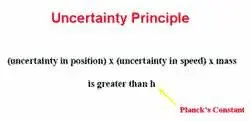
Laplace 's vision, of scientific determinism, involved knowing the positions and speeds of the particles in the universe, at one instant of time. So it was seriously undermined by Heisenberg's Uncertainty principle. How could one predict the future, when one could not measure accurately both the positions, and the speeds, of particles at the present time? No matter how powerful a computer you have, if you put lousy data in, you will get lousy predictions out.
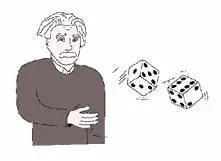
Einstein was very unhappy about this apparent randomness in nature. His views were summed up in his famous phrase, 'God does not play dice'. He seemed to have felt that the uncertainty was only provisional: but that there was an underlying reality, in which particles would have well defined positions and speeds, and would evolve according to deterministic laws, in the spirit of Laplace. This reality might be known to God, but the quantum nature of light would prevent us seeing it, except through a glass darkly.
Читать дальше
